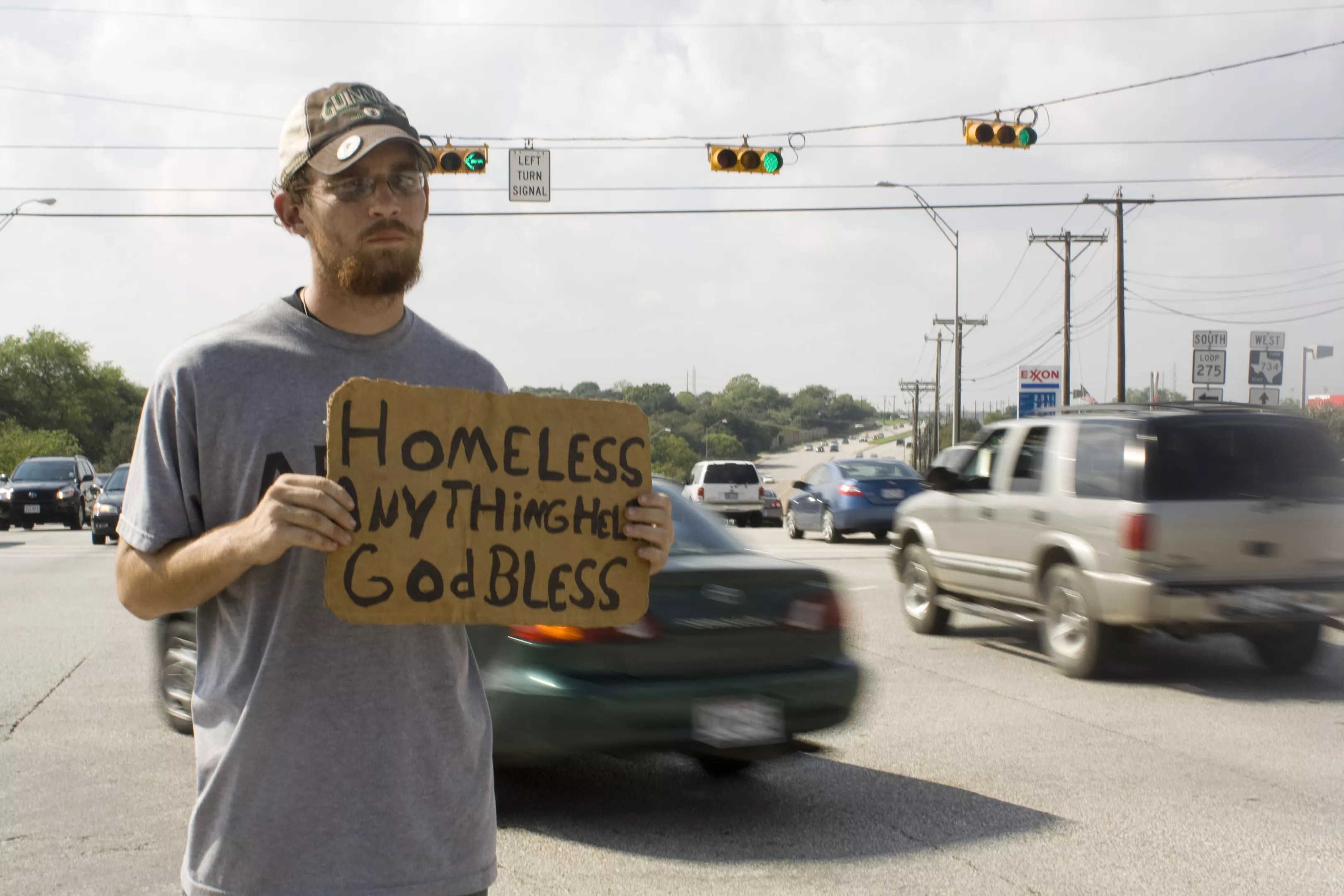
Hannly Sam via Flickr

Audio By Carbonatix
Late last month, Dallas City Council members rolled out a new plan for curbing panhandling across the city.
The Panhandling Deflection Program aims to connect people asking for money on the street to social services that will keep them from panhandling in the future. To access those services, panhandlers will be routed through Dallas’ community courts system.
“What community courts does instead is figure out, ‘Well, how can we help you to pay those bills in a way that isn’t standing on the corner breathing in fumes for six hours?'” said Christine Crossley, director of Dallas’ Office of Homeless Solutions.
Later this week, the city will put a database of panhandling-related interactions online, Crossley told the Observer.
“How can we help you do that in a way through the multitude of workforce agencies that work with the area shelters with community courts with OHS?” Crossley added. “How can we do that in a way that again, has you not standing here in danger of being run over by a car every day?”
Dallas and other cities around Texas have spent years grappling with panhandling and homelessness. In June, state lawmakers passed into law a ban on camping outside of designated areas, a move that prompted criticism from advocates and homeless rights watchdogs.
With a record number of homeless people in the county this year, Dallas’ new program is built on the motto “compassion plus enforcement.” Compassion means connecting people asking for money on the street to the appropriate social services, from mental health crisis treatment to temporary affordable housing options.
Enforcement means sending “a city marshal go out with a crisis intervention case worker to just sort of do a check on that person,” said City Council member Gay Donnell Willis. “You know, what’s their the mental and physical health status? Do they have any warrants out?”
How people move through the program would be decided according to whether they’re homeless when officials make contact.
Homeless people would be directed to Dallas’ new rehousing initiative. Others would be assessed by either the marshals or a mobile crisis outreach team and have an option to either accept or decline access to services. Anyone with outstanding warrants or unpaid fines who declines services can end up in community courts or in custody.
“You have a constitutional right to ask people for money.” – Hannah Lebovits, University of Texas at Arlington
The database will enable the various city agencies involved in homelessness and panhandling response, from city marshals to mental health crisis response teams, to coordinate their responses to panhandling calls, Crossley said.
But advocates are alarmed. “It’s not illegal to simply not have housing and to exist publicly,” said Dr. Hannah Lebovits, professor of public affairs and planning at the University of Texas at Arlington. “You have a constitutional right to ask people for money,” she said.
The U.S. Supreme Court ruled in 2015 that laws banning homeless people from panhandling violate free speech as protected by the First Amendment.
Although they aim to connect folks on the street to services, Dallas’ community courts still end up criminalizing panhandling, Lebovits argued. “When it comes to these secondary criminal justice systems, you have systems in which you can legally be entered into the criminal justice system, even though homelessness and panhandling aren’t illegal,” she explained.
The database’s true aim is to “put people into a system that looks very similar to the criminal justice system, in terms of how … it observes behaviors,” Lebovits said.
Still, Crossley emphasized that “the enforcement piece is not meant for the majority of folks.” The first goal of the deflection program is “opening a conversation to help [people] get what they need.” The city’s new panhandling database will make that conversation easier by documenting people’s past interactions with city officials and social services in one unified system, Crossley explained.
Only those who have a record of panhandling citations and refusing services will be cited for “illegal solicitation,” according to Crossley. The panhandling database, she explained, will help marshals, police and other first responders identify who meets criteria for illegal solicitation charges and who doesn’t, she said.
Dallas’ first community court was established in South Dallas in 2004. A spokesperson for city of Dallas didn’t respond to requests for comment on the court’s effectiveness.